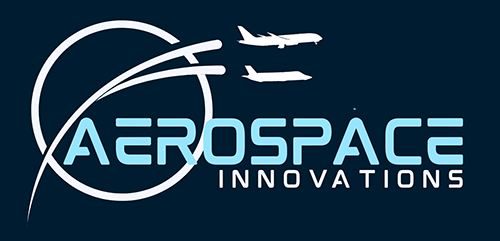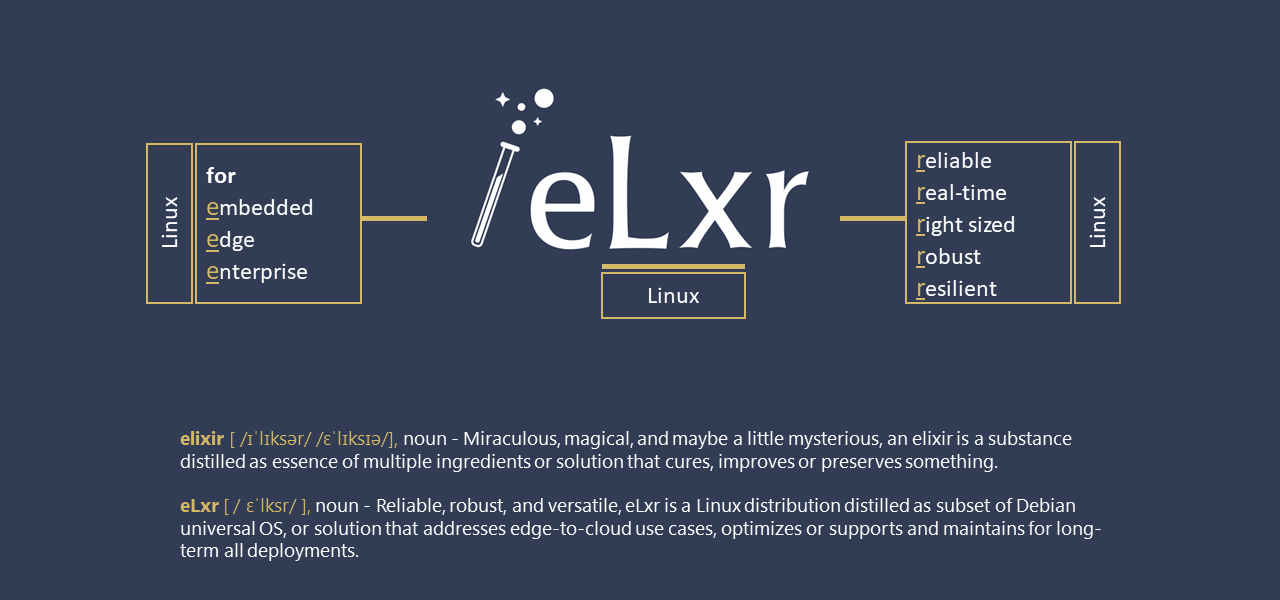Introducing eLxr
Delivering Enterprise-Grade Linux for Edge-to-Cloud Deployments
The eLxr project has launched its first release of a Debian derivative inheriting intelligent edge capabilities of Debian, with plans to expand these for a streamlined edge-to-cloud deployment approach. eLxr is an open source, enterprise-grade Linux distribution that addresses the unique challenges of near-edge networks and workloads.
What Is the eLxr Project?
The eLxr project is a community-driven effort dedicated to broadening access to cutting-edge technologies for both enthusiasts and enterprise users seeking reliable and innovative solutions that scale from edge to cloud. The project produces and maintains an open source, enterprise-grade Debian-derivative distribution called eLxr that is easy for users to adopt and that fully honors the open source philosophy.
The eLxr project’s mission is centered on accessibility, innovation, and maintaining the integrity of open source software. Making these advancements in an enterprise-grade Debian-derivative ensures that users benefit from a freely available Linux distribution.
By emphasizing ease of adoption alongside open source principles, eLxr aims to attract a broad range of users and contributors who value both innovation and community-driven development, fostering collaboration and transparency and the spread of new technologies.
The eLxr project is establishing a robust strategy for building on Debian’s ecosystem while also contributing back to it. Because “Debian citizens” contribute eLxr innovations and improvements upstream, they are actively participating in the community’s development activities. This approach not only enhances eLxr’s own distribution but also strengthens Debian by expanding its feature set and improving its overall quality.
The ability to release technologies at various stages of Debian’s development lifecycle and to introduce innovative new content not yet available in Debian highlights eLxr’s agility and responsiveness to emerging needs. Moreover, the commitment to sustainability ensures that contributions made by eLxr members remain accessible and beneficial to the broader Debian community over the long term.
A Unified Approach for Intelligent Deployments at the Edge
Today’s technology demands agility and responsiveness to rapidly changing requirements and operational challenges. By integrating cutting-edge technologies from open source communities and technology companies into its distribution, the eLxr project enables users to leverage innovations that may not yet be widely distributed or easily accessible through other channels.
Over the past decade, “build from source” solutions such as the Yocto Project and Buildroot have been favored for enabling various use cases at the intelligent edge. Traditional methods of building embedded Linux devices, which offer extensive customizations and the ability to generate a software development kit (SDK) providing a cross-development toolchain, have allowed developers to maximize the performance of resource-constrained devices while offloading build tasks to more powerful machines.
However, the increasing connectivity demands of edge deployments, including over-the-air (OTA) updates and new paradigms such as data aggregation, edge processing, predictive maintenance, and various machine learning features, necessitate a different architectural approach for both near-edge devices and servers. This results in using multiple distributions, creating a heterogeneous landscape of operating environments and increasing complexity and cost. Such complexities impose significant burdens — the need to monitor for CVEs and bugs, use of additional SBOMs and diverse update cadences, and many other challenges.
To address these issues and provide a more homogeneous solution, eLxr has been introduced as a Debian derivative, using modern tools to ease maintenance while combining traditional installers with a new set of distro-to-order tools that allow a single distribution to better service edge and server deployment. Coupled with a unified tech stack, this initiative offers a strategic advantage for enterprises aiming to optimize their edge deployments, create a seamless operating environment across devices, and set the foundation for future innovations in edge-to-cloud deployments. Existing enterprise solutions move more slowly than the speed that users require to quickly innovate and rapidly adopt new technologies.
As a distribution partner for open source communities and technology companies that have developed innovative solutions but lack the means to widely distribute them, the eLxr project bridges a crucial technology delivery gap.
Why Debian?
The eLxr project chose Debian for two primary reasons: Debian’s staunch defense and adherence to the open source philosophy for more than 30 years and its embrace of derivative efforts.
Debian encourages the creation of new distributions and derivatives, such as eLxr, that help expand its reach into various use cases. Debian sees sharing experiences with derivatives as a way to expand the community, improve the code for the existing users, and make Debian suitable for a more diverse audience.
Wind River® contributed the initial eLxr release as the first step in a journey that grows a community committed to timely distribution and delivery of new, ready technology in a guaranteed open source distribution.
The eLxr project believes that our approach promotes accessibility and flexibility for anyone who wishes to join, allowing them to close their gap between technology-ready and distribution-delivery, or simply to take advantage of gaps that have been closed already.
eLxr is strategically positioned to address the evolving challenges in the aerospace and defense (A&D) sectors, particularly in the realm of intelligent edge-driven environments. Leveraging its foundation on Debian, eLxr offers a robust and secure operating system, enriched with a vast array of packages tailored for edge-to-cloud applications. This stable base is crucial for A&D applications where reliability and security are paramount.
Key aspects of eLxr’s value include:
Open-Source Heritage Commitment: By building on and contributing back to Debian, eLxr ensures cost-effective and widely deployable solutions without licensing constraints. This open-source approach facilitates extensive customization and rapid deployment, critical for edge computing in A&D scenarios.
Reduce Security Attack Surface: eLxr commitment to minimize vulnerabilities and reduce attack surfaces, critical for maintaining the integrity of defense systems. This focus on security enhances the platform’s adaptability to stringent A&D environments, ensuring that critical systems are safeguarded against emerging threats.
Performance Optimized for Edge Use Cases: eLxr meets the stringent demands of edge computing from avionics to battlefield management systems. Its scalable architecture supports both small-scale embedded systems and large-scale defense networks, ensuring precise and reliable operation crucial for decision-making and real-time data processing.
Prioritized Security & Compliance: Understanding the critical nature of security in A&D, eLxr ensures compliance with stringent security standards, with STIG planned in upcoming months. This focus simplifies certification processes, making eLxr a viable option for deployment in environments where compliance is non-negotiable.
Minimal & Extensible Footprint: eLxr’s modular design allows for optimized resource usage and rapid adaptation to meet specific mission requirements without redundant overhead. This extensibility is vital for efficiently managing resource-constrained environments typical in embedded defense systems.
By offering these core value drivers to users, eLxr is set to deliver a comprehensive, adaptable, and secure platform that aligns with the strategic and operational needs of the A&D industry, paving the way for a unified approach across various edge and core applications.




